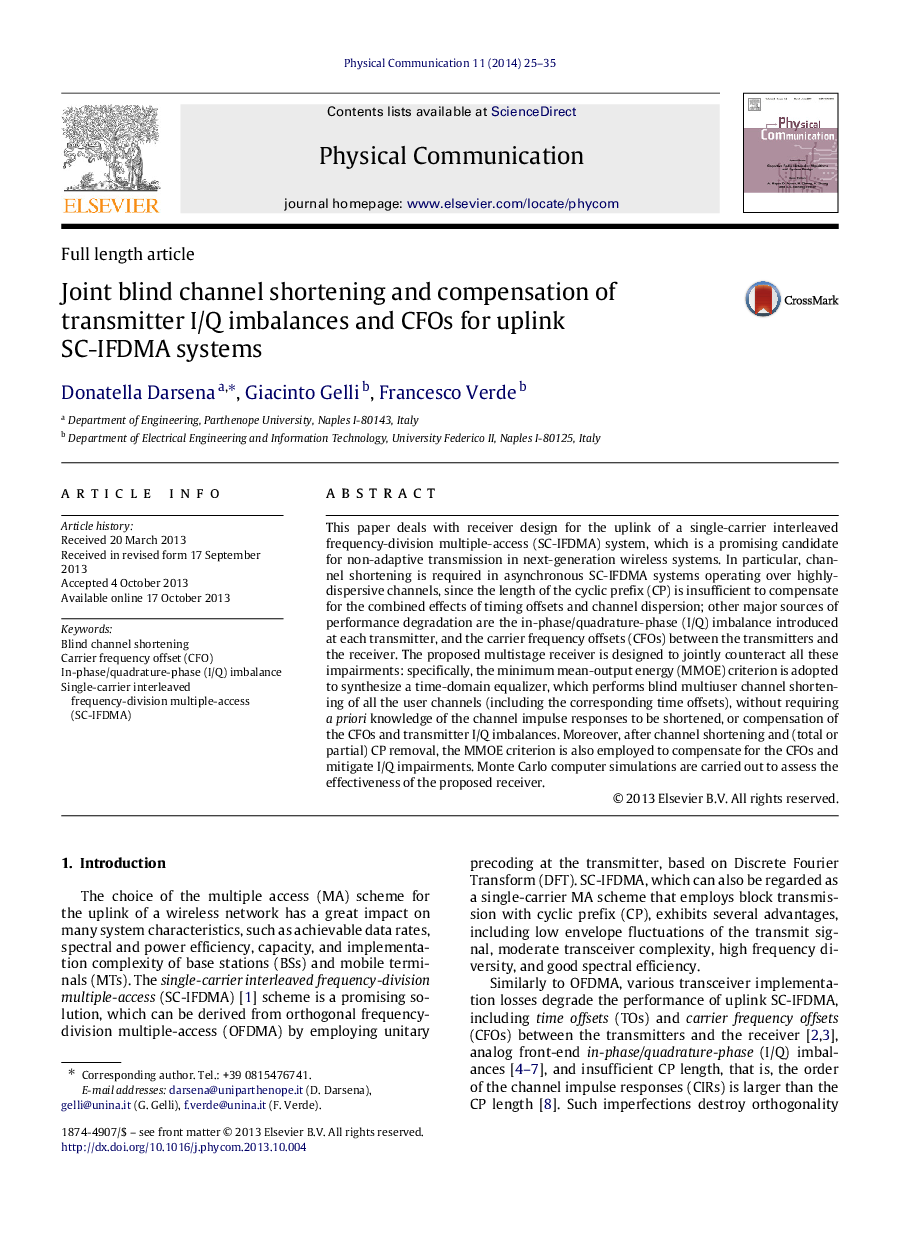| Article ID | Journal | Published Year | Pages | File Type |
|---|---|---|---|---|
| 465109 | Physical Communication | 2014 | 11 Pages |
This paper deals with receiver design for the uplink of a single-carrier interleaved frequency-division multiple-access (SC-IFDMA) system, which is a promising candidate for non-adaptive transmission in next-generation wireless systems. In particular, channel shortening is required in asynchronous SC-IFDMA systems operating over highly-dispersive channels, since the length of the cyclic prefix (CP) is insufficient to compensate for the combined effects of timing offsets and channel dispersion; other major sources of performance degradation are the in-phase/quadrature-phase (I/Q) imbalance introduced at each transmitter, and the carrier frequency offsets (CFOs) between the transmitters and the receiver. The proposed multistage receiver is designed to jointly counteract all these impairments: specifically, the minimum mean-output energy (MMOE) criterion is adopted to synthesize a time-domain equalizer, which performs blind multiuser channel shortening of all the user channels (including the corresponding time offsets), without requiring a priori knowledge of the channel impulse responses to be shortened, or compensation of the CFOs and transmitter I/Q imbalances. Moreover, after channel shortening and (total or partial) CP removal, the MMOE criterion is also employed to compensate for the CFOs and mitigate I/Q impairments. Monte Carlo computer simulations are carried out to assess the effectiveness of the proposed receiver.
